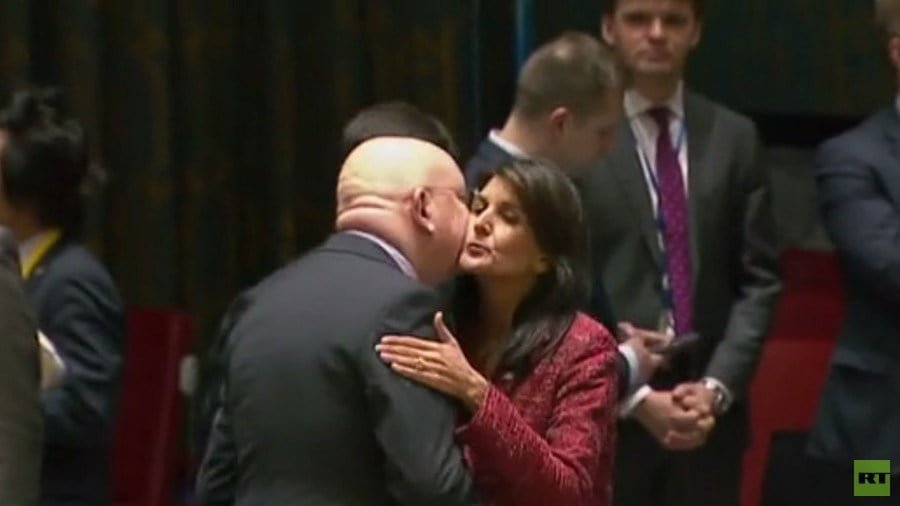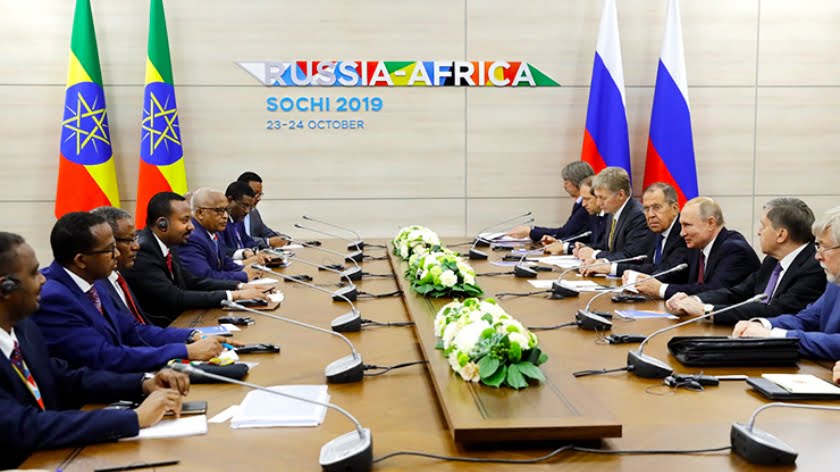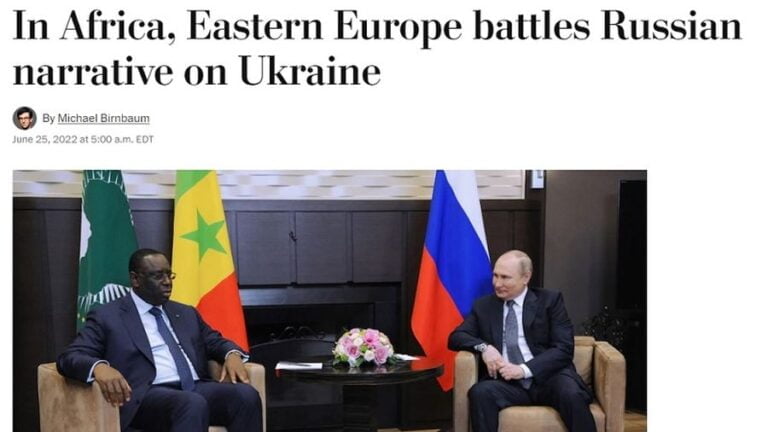Idlib: Where a Very Real War Meets High Political Theatre
The Battle of Idlib!…or The Battle of Idlib?
Reports have indicated that the Syrian Arab Army has already begun some military operations in the notorious Idlib Governorate. Just prior to these reports seeing light, both Donald Trump and the US Ambassador to the UN Nikki Haley issued implied threats to conduct another missile strike on Syria as a result of Damascus’s forces entering Idlib while Russia and Iran both slammed the US for doing so. Finally, Turkey’s government stated that it disapproves of any Damascus led operation into Idlib.
If the aforementioned rhetoric has caused deja vu among any reader, this should not be surprising. While the realities on the ground in Syria and the realities of the roles the major powers are playing in Syria has changed drastically since 2015, at times when a major battle appears as though it is about to begin, the old rhetoric is predictably dusted off. The rhetoric itself is not dishonest in terms of revealing the intentions of each national actor. Instead the rhetoric is merely outdated in terms of its accuracy.
What they say and what they mean
To illustrate the aforementioned scenario, the following sets of phrases that became familiar in 2015 will be followed by what they actually mean in 2018:
What the USA says: “The Assad regime’s use of chemical weapons will not be tolerated. We are not afraid to stand up to Russia for helping to prop up a savage dictator“.
What the USA means: “We’ve already acknowledged that Assad isn’t going anywhere and we are privately grateful to be working with Russia in order to support our mutual Israeli ally. However to create a bit of leverage for future negotiations and to get Bob Woodward’s book out of the headlines we might fire some missiles at non-targets in Syria and shout ‘mission accomplished’ afterwards”.
—
What Russia says: “All terrorists in Idlib must be neutralised and Syria’s sovereignty must be respected by all nations.“.
What Russia means: “We seek to minimise any fighting in Idlib as much as possible by working with our Astana partners (Turkey and Iran) to evacuate as many civilians as possible from limited areas of danger. Furthermore, we will not allow the Syrian and Turkish armies to fight one another in any way shape or form and privately hope for long term Turko-Syrian reconciliation of one kind or another. This is understood by all of our partners including and especially in Damascus. The US cannot meaningfully change the realities of the conflict which Russia has made clear it wants to wind down and begin a negotiated political process. We resent any illegal missile strike on Syria but we know that the US would not be so stupid as to hit any targets near anything remotely Russia. As for Israeli strikes on alleged Iranian targets, we have never intervened in this and will not do so”.
—
What Iran says: “We shall fight along with our Syrian brothers until the end and the Resistance shall triumph no matter what the American devil says or does.“.
What Iran means: “Now that Daesh is largely defeated and our economy is in grave danger we cannot afford to alienate our Russian or Turkish partners at a time when both have stood by us far more meaningfully than Europe. Thus, we will not allow anything to happen in Idlib that goes against the interests of our Russian and Turkish partners much though it pains us that things have reached such a stage“.
—
What Turkey says: “Any military attack on Idlib is totally unacceptable and we are in full agreement with the United States on the importance of this issue“.
What Turkey means: “While we do not want to see military operations in our de-escalation zones in Idlib or anywhere that Turkey has invested its resources in Syrian territory, we will work closely with our Russian partners to make sure that whatever operations are conducted are reasonable by our estimation. Unless Iran does something totally unexpected, we realise that Iran and Turkey are important economic partners in spite of compartmentalised disagreements over Syria. Until the US ends its economic war against us, stops funding the YPG/PKK and stops sheltering Gulen, we’re not going to be the ‘old Turkey’ in America’s eyes“.
—
What Israel says: “We shall not hesitate to defend our interests against aggressive Iranian terrorism hosted by the Assad regime”.
What Israel means: “We are happy that our US and Russian friends have agreed to help us and while we’ll still probably occasionally strike Syria with a big wink and even bigger nod from the US, it won’t amount to much in terms of changing the realities on the ground just as it has not in the past“.
The reality today
At present, much mystery surrounds just what will happen to Syria’s perpetually doomed Idlib Governorate that has been occupied by various terrorist and militant factions since 2014. While some Syrian sources claim that the government is planning to launch an all out assault on the lost Governorate as part of the strategy to “liberate every inch of Syria”, the reality will likely be different.
In parts of Idlib and nearby regions of Aleppo Governorate, fighters on the ground remain loyal to Turkey. It is inconceivable that as the strongest military power that is cooperating with both Ankara and Damascus, Russia would allow for any direct clashes between pro-Damascus and pro-Ankara factions. As Turkey and Russia continue dialogue over the matter, this reality continues to become all the more solidified.
What is however likely is a degree of joint Russo-Syrian cooperation against militants not aligned with Ankara and in this phase of the war, Turkey might well join parts of the operation, albeit without directly cooperating with Damascus. This would help promulgate Russia’s long term strategy of de-escalating tensions between Damascus and Ankara as it is in Russia’s interest to see relations between Syria and Turkey gradually normalise over the medium term.
In spite of all of this, it is still possible that pro-western groups could stage the false flag chemical attack that Major General Konashenkov has warned of, while it is equally conceivable that John Bolton is incredibly serious when he has preemptively threatened a new US strike on Syria in the event of such an “attack”.
Therefore the most important issue which thus far no side could conceivably address in public is whether such a US attack would be strategically meaningful? One of the reasons that the US led attack from April of this year was a strategic failure, apart from the surprisingly high performance of old Soviet missile interceptors, was due to the fact that the US and Russia have a de-facto agreement not to target one another’s human or material assets in Syria.
While an unprovoked attack on a sovereign state is clearly an act of reckless aggression, the US is not so reckless as to fire missiles anywhere near Russian assets. Because Russian soldiers, civilian aid workers and material assets are present in all of the strategically important parts of western Syria that a would-be aggressor could target in order to weaken the Syrian government, there is no chance that the US or its western partners would take such a chance. That was true under Barack Obama and it is certainly true under Donald Trump, a man who seems to have no real passion for US involvement in Syria in any case.
Secondly, if the US decided to strike areas of Idlib or Hama occupied by terrorist groups opposed to Damascus, they would ironically be doing the Syrian government’s job for it. Unless the US simply wants a fireworks show that would certainly not be stopped by anyone else, this could happen although the idea of the US bombing its erstwhile and in some cases current militant allies is still not all that likely.
Therefore, the most likely options are either for the US and Russia to reach some sort of common understanding regarding Idlib and surrounding areas that would necessarily restrict Syria from executing its “liberate every inch” strategy, or otherwise, a limited Russo-Syrian strike on militant targets in Idlib would be met with another US strike on insignificant targets in peripheral regions of western Syria.
Because of this, no matter what the US proxies infamous for staging false flags do and no matter what the US might do in the aftermath of such a make-believe provocation, the reality is that even if the US conducts another missile strike on Syria, there is little that the US or its allies could do that would facilitate meaningful change to the trajectory of the war or the overarching realities on the ground.
While Russia would prefer to continue private dialogue with the US to avoid such an incident, both sides certainly know that the worst case scenario would be one where Russia can engage in the largely didactic exercise of helping Syria to test some old Soviet equipment against state of the art US missile technology, while the US President could take advantage of a distraction from domestic “scandals” all the while appearing to “stand up to Russia”. Ultimately, all sides realise that at the end of the day such a strike will not make a bit of difference to how the war will progress and ultimately end.







